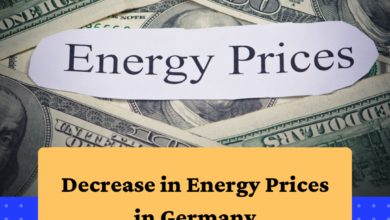€3000 Inflation Relief Bonus for Employees
€3000 Inflation Relief Bonus for Employees
The German government has announced a €3000 inflation relief bonus for employees. This is a one-time tax-free payment.
The payment was announced on 25 October last year via the Bundesregierung, the German government’s website.
The inflation relief bonus, called Inflationsausgleichsprämie in German, is a bonus meant to incentivize employers to pay their employees additional compensation. The payment is free from social security costs and is viable from 26 October 2022 to December 31, 2024.
Within the time restriction, this tax allowance of €3000 may be paid out in several separate installments over a longer period of time.
The payment must be a benefit in addition to the regular salary. In other words, the salary or other special payments cannot in any way be altered or replaced because of the bonus. Instead, the bonus must come “on top.”
The payment is advantageous for both the employers and the employees. The benefits for employees are quite clear. But employers can also use this bonus to improve the working environment amid the energy crisis. There are also tax benefits for the employer in that they can write this off as a business expense.
Who is Qualified for the Bonus?
The following are the employee groups qualified for this payment:
- Full-time employees
- Part-time employees
- Mini-jobbers,
- Working students
- Trainees
- Short-term employees
A Voluntary Bonus by Companies
The €3000 Inflation Relief Bonus is not provided by the state. Instead, it is a voluntary payment made by the employer. In simpler terms, this means that not every employee will receive the incentive. So, the employee practically has no recourse against the bonus’s payment.
Companies may give out non-cash incentives as part of the inflation bonus as well; whatever relieves workers from inflation qualifies. For instance, meal coupons and fuel vouchers. The incentive may alternatively be distributed between cash payments and benefits-in-kind.
Another important aspect of the payment is that employees can receive the payment again from new employers. Even if they have already been paid the total amount of €3000, they are still eligible for the payment.
Different Wage Groups
For lower pay categories, the inflation relief bonus is more significant. Higher-paid groups may even be excluded since this is an inflation relief payment after all. A sliding scale should be used when the pay gaps between the categories are not too large. That means the higher the basic salary, the lower the inflation bonus.
This payment is a great benefit for employees to look forward to. For those starting a new job with a new company, it would be advantageous to agree to a lower basic wage up until December 31, 2024, which would then be augmented by the inflation bonus. When the agreement’s validity period ends at the end of 2024, both employers and employees may find it to be highly appealing.
Read more:
Students to Receive €200 Energy Relief Payout
‘Chancenkarte’ or Opportunity Card in Germany










